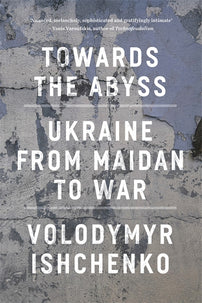Which class rules Russia?
In this excerpt from Towards the Abyss, Volodymyr Ishchenko explores the specificity of Russian political capitalism

When asked which class rules Russia, most people on the left would likely answer almost instinctively: capitalists. The average citizen in the post-Soviet space would probably call them thieves, crooks or mafia. A slightly more highbrow response would be ‘oligarchs’.
It is easy to dismiss such answers as the false consciousness of those who do not understand their rulers in ‘proper’ Marxist terms. However, a more productive path of analysis would be to think about why post-Soviet citizens emphasize the stealing and the tight interdependency between private business and the state that the word ‘oligarch’ implies.
As with the discussion of modern imperialism, we need to take the specificity of the post-Soviet condition seriously. Historically, the ‘primitive accumulation’ here happened in the process of the Soviet state and economy’s centrifugal disintegration. Political scientist Steven Solnick called this process ‘stealing the state’.
Members of the new ruling class either privatized state property (often for pennies on the dollar) or were granted plentiful opportunities to siphon off profits from formally public entities into private hands. They exploited informal relations with state officials and the often intentionally designed legal loopholes for massive tax evasion and capital flight, all while executing hostile company takeovers for the sake of quick profits with a short-term horizon.
Russian Marxist economist Ruslan Dzarasov captured these practices with the ‘insider rent’ concept, emphasizing the rent-like nature of income extracted by insiders thanks to their control over the financial flows of the enterprises, which depend on the relationships with the power holders. These practices can certainly also be found in other parts of the world, but their role in the formation and reproduction of the Russian ruling class is far more important due to the nature of the post-Soviet transformation, which began with the centrifugal collapse of state socialism and the subsequent political-economic reconsolidation on a patronage basis.
Other prominent thinkers, such as Hungarian sociologist Iván Szelényi, describe a similar phenomenon as ‘political capitalism’. Following Max Weber, political capitalism is characterized by the exploitation of political office to accumulate private wealth. I would call the political capitalists the fraction of the capitalist class whose main competitive advantage is derived from selective benefits from the state, unlike capitalists, whose advantage is rooted in technological innovations or a particularly cheap labour force.
Political capitalists are not unique to the post-Soviet countries, but they are able to flourish precisely in those areas where the state has historically played the dominant role in the economy and accumulated immense capital, which is now open for private exploitation.
The presence of political capitalism is crucial to understanding why, when the Kremlin speaks about ‘sovereignty’ or ‘spheres of influence’, this is by no means the product of an irrational obsession with outdated concepts. At the same time, such rhetoric is not so much an articulation of Russia’s national interest as a direct reflection of the Russian political capitalists’ class interests.
If the state’s selective benefits are fundamental for the accumulation of their wealth, these capitalists have no choice but to fence off the territory where they exercise monopoly control – control not to be shared with any other fraction of the capitalist class.
This interest in ‘marking territory’ is not shared by, or at least not so important for, different types of capitalists. A long-running controversy in Marxist theory centred on the question of, to paraphrase Göran Therborn, ‘what the ruling class actually does when it rules’. The puzzle was that the bourgeoisie in capitalist states does not usually run the state directly. The state bureaucracy usually enjoys substantial autonomy from the capitalist class but serves it by establishing and enforcing rules that benefit capitalist accumulation.
Political capitalists, by contrast, require not general rules but much tighter control over political decision-makers. Alternatively, they occupy political offices themselves and exploit them for private enrichment.
Many icons of classical entrepreneurial capitalism benefited from state subsidies, preferential tax regimes or various protectionist measures. Yet, unlike political capitalists, their very survival and expansion on the market only rarely depended on the specific set of individuals holding specific offices, the specific parties in power or the specific political regimes.
Transnational capital could and would survive without the nation-states in which their headquarters were located – recall the seasteading project, comprising floating entrepreneurial cities independent of any nation-state, boosted by Silicon Valley tycoons like Peter Thiel. Political capitalists cannot survive in global competition without at least some territory where they can reap insider rents without outside interference.
— An edited excerpt from Towards the Abyss: Ukraine from Maidan to War by Volodymyr Ishchenko.
[book-strip index="1" style="buy"]
